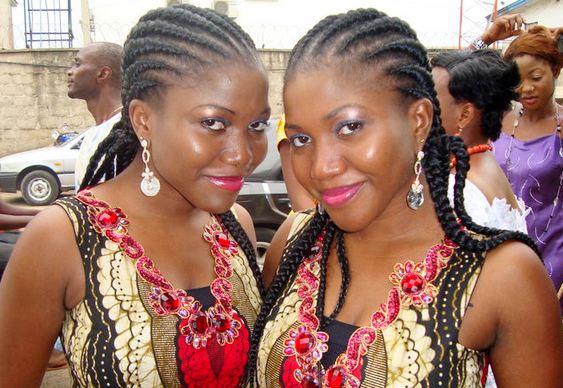Twins, the birth of two offspring from the same pregnancy, is a relatively uncommon phenomenon, and as such, twins are often regarded as special.
Worldwide, the birth rate of twins varies by region and country. Latin America and Southeast Asia have the lowest rates, with only about 9 sets of twins per every 1,000 births.
In Europe, the figure is about 16 twins for every 1,000 births, and in the United States, it is about 33 for every 1,000 births.
And in central Africa, that number raises to around 18 to 30 sets of twins for every 1,000 births.
However, the Yoruba people of southwest Nigeria boast the highest number of twin births in the world, with about 50 sets of twins for every 1,000 live births.
And in Yorubaland, one town in particular appears to take the prize for the highest number of multiple births in the world.

Photo Credit: Gateway Nigeria
Igbo Ora, a sleepy agrarian town 80 kilometers from Lagos, is easily the twin capital of the world: unconfirmed estimates from the town say it boasts a mind-blowing 158 sets of twins for every 1,000 live births.

Yoruba Twins
At the entrance to the town, visitors are welcomed with a large plinth, which proudly celebrates its reputation as “the land of twins.”
While there is no empirical reason for the high incidence of twin births in the town, around Yorubaland, fertility experts say a possible explanation for the high incidence of multiple births in the area could lie in the consumption of a specific type of yam containing a natural phytoestrogen, which is thought to stimulate a woman’s ovaries to release eggs from each side.
The locals and residents of Igbo Ora, however, say the secret of their multiple births lie in their staple, which consists of the leaf of an okra plant and yam.
In a 2013 interview, a community leader said, “We eat a lot of the okra leaf or Ilasa soup. We also eat a lot of yam and these diets influence multiple births.”

Photo credit: Nairaland
In Igbo Ora — as with many surrounding Yoruba towns — twins are commonly called “Taiye” and “Kehinde,” respectively, after the order of their births.

Twins
In addition, they are almost always dressed in matching outfits at least for the first few years of their lives. It is also not uncommon to find in Igbo Ora persons who regard twins as special creatures and accord them worship them as minor deities in a town where every household boasts at least a set of twins.









